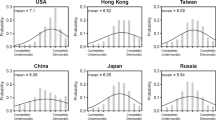From that time on Caesar managed all the affairs of state alone and after his own pleasure; so that sundry witty fellows, pretending by way of jest to sign and seal testamentary documents, wrote “Done in the consulship of Julius and Caesar.”
Suetonius, Lives of the Caesars. Chapter XX.
Abstract
The Gibbard–Satterthwaite theorem is a cornerstone of social choice theory, stating that an onto social choice function cannot be both strategy-proof and non-dictatorial if the number of alternatives is at least three. The Duggan–Schwartz theorem proves an analogue in the case of set-valued elections: if the function is onto with respect to singletons, and can be manipulated by neither an optimist nor a pessimist, it must have a weak dictator. However, the assumption that the function is onto with respect to singletons makes the Duggan–Schwartz theorem inapplicable to elections which necessarily select multiple winners. In this paper we make a start on this problem by considering rules which always elect exactly two winners (such as the consulship of ancient Rome). We establish that if such a consular election rule cannot be expressed as the union of two disjoint social choice functions, then strategy-proofness implies the existence of a dictator. Although we suspect that a similar result holds for k-winner rules for \(k>2\), there appear to be many obstacles to proving it, which we discuss in detail.


Similar content being viewed by others
Notes
The original Duggan–Schwartz result thus applies to regular correspondences where the smallest winner set is a singleton.
Gaius Marius held the consulship of Rome an unprecedented seven times. There was nothing in the Roman constitution that prevented a pair without Marius being elected, so strictly speaking this wasn’t a range restriction. However the high probability of Marius winning made this an appropriate name for this degenerate case of a consular rule.
Among other problems. If we take \(\succ _i^O\cup \succ _i^P\) to represent a voter’s strict preferences, we have to posit that a voter is able to at once strictly prefer X to Y and Y to X—what is sometimes known as conflicted preferences in the literature.
References
Aswal N, Chatterji S, Sen A (2003) Dictatorial domains. Econ Theory 22(1):45–62. https://doi.org/10.1007/s00199-002-0285-8
Barberà S (1977) The manipulation of social choice mechanisms that do not leave “Too Much” to chance. Econometrica 45(7):1573–1588. ISSN: 00129682, 14680262. http://www.jstor.org/stable/1913950
Barberà S (2011) Strategyproof social choice. In: Handbook of social choice and welfare, Vol 2, Elsevier, Amsterdam, pp 731–831
Barberà S, Bossert W, Pattanaik PK (2004) Ranking sets of objects. Springer, New York. https://doi.org/10.1007/978-1-4020-7964-1_4
Barberà S, Coelho D (2008) How to choose a non-controversial list with k names. Soc Choice Welf 31:79–96
Barberà S, Coelho D (2010) On the rule of k names. Games Econ Behav 70(1):44–61
Barberá S, Massó J, Neme A (2005) Voting by committees under constraints. J Econ Theory 122(2):185–205. https://doi.org/10.1016/j.jet.2004.05.006
Barberà S, Sonnenschein H, Zhou L (1991) Voting by committees. Econometrica 59(3):595–609. ISSN:00129682, 14680262. http://www.jstor.org/stable/2938220
Campbell DE, Kelly JS (2002) A leximin characterization of strategy-proof and non-resolute social choice procedures. Econ Theory 20(4):809–829. https://doi.org/10.1007/s00199-001-0239-6
Duddy C et al (2014) Social dichotomy functions. http://static.uni-graz.at/fileadmin/sowi-institute/Volkswirtschaftslehre/Wendner/Economic_Research_Seminar/GV_Zwicker_extended_abstract_Feb_22.pdf
Duggan J, Schwartz T (1992) Strategic manipulability is inescapable: Gibbard–Satterthwaite without resoluteness. In: Working papers 817, California Institute of Technology, Division of the Humanities and Social Sciences. http://EconPapers.repec.org/RePEc:clt:sswopa:817
Duggan J, Schwartz T (2000) Strategic manipulability without resoluteness or shared beliefs: Gibbard-Satterthwaite generalized. Soc Choice Welf 17(1):85–93. https://doi.org/10.1007/PL00007177
Dummett M, Farquharson R (1961) Stability in voting. Econ J Econ Soc. pp 33–43. http://www.jstor.org/stable/1907685. Accessed on 10 Apr 2016
Faliszewski P et al (2016) Committee scoring rules: axiomatic classification and hierarchy. In: Proceedings of the twenty-fifth international joint conference on artificial intelligence, IJCAI’16, New York, AAAI Press, pp 250–256. ISBN: 978-1-57735-770-4. http://dl.acm.org/citation.cfm?id=3060621.3060657
Gibbard A (1973) Manipulation of voting schemes: a general result. Econometrica 41(4):587–601. http://www.jstor.org/stable/1914083
Gibbard A (1977) Manipulation of schemes that mix voting with chance. In: Econometrica 45.3, p. 665. ISSN: 00129682. https://doi.org/10.2307/1911681. http://www.jstor.org/stable/1911681?origin=crossref. Accessed on 07 Feb 2014
Kelly JS (1977) Strategy-proofness and social choice functions without single valuedness. Econometrica 45(2):439–446. ISSN: 00129682, 14680262. http://www.jstor.org/stable/1911220
Meir R et al (2008) Complexity of strategic behavior in multi-winner elections. J Artif Intell Res 33(1):149–178. ISSN: 1076-9757. http://dl.acm.org/citation.cfm?id=1622698.1622703
Moulin Hervé et al (2016) Handbook of computational social choice. Cambridge University Press, Cambridge
Özyurt S, Sanver MR (2008) Strategy-proof resolute social choice correspondences. Soc Choice Welf 30(1):89–101. https://doi.org/10.1007/s00355-007-0223-6
Özyurt S, Sanver MR (2009) A general impossibility result on strategy-proof social choice hyperfunctions. In: Games and economic behavior 66.2. Special Section In Honor of David Gale, pp 880–892. ISSN: 0899-8256. https://doi.org/10.1016/j.geb.2008.09.026. http://www.sciencedirect.com/science/article/pii/S089982560800170X
Pattanaik PK, Dutta B (1978) Strategy and group choice. Contributions to economic analysis. North-Holland Pub. Co. ISBN: 9780444851260. https://books.google.co.nz/books?id=AdDrAAAAMAAJ
Reffgen A (2011) Generalizing the Gibbard-Satterthwaite theorem: partial preferences, the degree of manipulation, and multi-valuedness. Soc Choice Welf 37(1):39–59. https://doi.org/10.1007/s00355-010-0479-0
Satterthwaite MA (1975) Strategy-proofness and Arrow’s conditions: existence and correspondence theorems for voting procedures and social welfare functions. J Econ Theory 10(2):187–217. https://doi.org/10.1016/0022-0531(75)90050-2
Sertel M, Slinko A (2007) Ranking committees, income streams or multisets. Econ Theory 30(2):265–287. https://doi.org/10.1007/s00199-005-0054-6
Skowron P, Faliszewski P, Slinko A (2016) Axiomatic characterization of committee scoring rules. Preprint arXiv:1604.01529
Taylor AD (2002) The manipulability of voting systems. In: The American Mathematical Monthly 109(4):321–337. ISSN: 00029890, 19300972. http://www.jstor.org/stable/2695497
Author information
Authors and Affiliations
Corresponding author
Additional information
Supported by the NZ Marsden fund, grant UOA3706352. The authors acknowledge useful conversations with Arkadii Slinko.
Rights and permissions
About this article
Cite this article
Ianovski, E., Wilson, M.C. Manipulability of consular election rules. Soc Choice Welf 52, 363–393 (2019). https://doi.org/10.1007/s00355-018-1152-2
Received:
Accepted:
Published:
Issue Date:
DOI: https://doi.org/10.1007/s00355-018-1152-2




